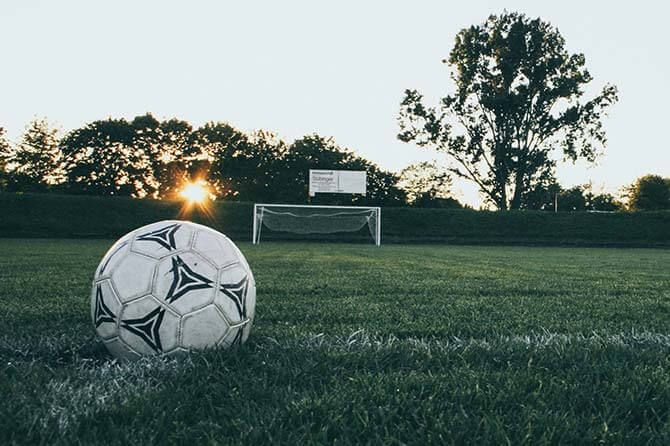
How Brentford FC Get Better Sleep
Tips for Better Sleep by Brentford FC
What do you have in common with a Premier League footballer?
If you answered either ‘precision accuracy at set-pieces’ or ‘blistering pace down the left wing’, consult your local five-a-side team immediately.
But if, like us, you feel you have staggeringly little in common with these elite athletes, well… you’d be wrong. In fact, we’d go so far as to say that the key ingredient for their scintillating on-pitch performances and your workweek hustle are one and the same.
Because the key ingredient is sleep.
And so, to demonstrate their commitment to better sleep, Brentford FC (who teamed up with us last season as their official sleep partner) worked alongside sleep expert, Anna West of Sleep2Perform, to learn how to sleep better. And now we're passing on these nuggets of information to you, so you can sleep better too.
How to Sleep Like a Premier League Footballer
From late games to frequent European travel, it can be difficult for footballers to get the recommended eight hours of sleep per night.
Anna West believes that this instability goes against a person’s natural biology and that the lack of sleep it results in poses significant risks to their performance.
And while she was talking specifically about footballers, the idea is universal. Simply put, sleeping better allows you to fire on all cylinders, no matter what field you’re in.
But, as Anna suggests, changes to sleep patterns must be made gradually, or cortisol – the stress hormone – can interfere and exacerbate the issue.
So, in the spirit of improving everyone’s slumber, we thought we’d share what we learned from our partnership with Brentford FC.
Diet
If you’re a habitual late eater, this first piece of advice is for you, as eating correctly is vital in creating the right hormones for natural, restful sleep.
Did your parents ever raise an eyebrow as you devoured a takeaway at 11pm? Or strongly advise you against whipping up a batch of pancakes on a whim after a night out?
It turns out they were right.
Night-time snacks are fine, but heavy meals consumed too close to bedtime can negatively affect your circadian rhythm (your body’s internal clock) and disrupt your sleep.
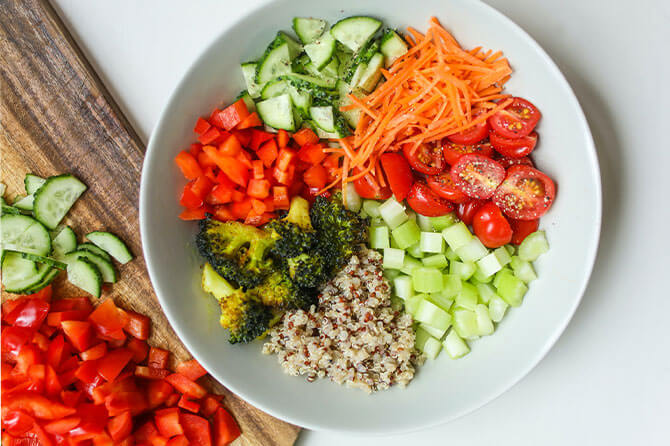
Alcohol
As sleep myths go, nothing ranks higher on the myth-detector than the notion that alcohol helps you sleep.
We see it everywhere. Whether a restless sleeper on TV pouring themselves a glass of scotch or an intoxicated student dozing so peacefully they miss a vital lecture.
But, in reality, the opposite is true.
Alcohol greatly affects the quality of sleep we get as it dramatically increases our blood pressure, as well as refocusing our body’s energy to work on processing the alcohol, rather than the usual repair and recovery.
And so, as with food, it’s wise to limit your alcohol intake before bed, ideally allowing time for your body to process those cocktails before you turn in for the night.

Napping
Ah, naps. A double-edged sword in the world of sleep science; able to help or hinder based almost entirely on timing.
You see, if timed well, a sneaky snooze can leave you feeling alert and rejuvenated. However, if your naps aren’t controlled, they can wreak havoc on your sleep cycle.
Napping for too long confuses your circadian rhythm, making it difficult to sleep at night as your brain struggles to produce sleep hormones, thinking that it’s already slept. (Still with us?)
So, if you’re unwilling to cut the catnaps, perhaps try to take them more strategically. For example, decide upon a time to nap and set an alarm to ensure that you don’t slip too deeply into dreamland.
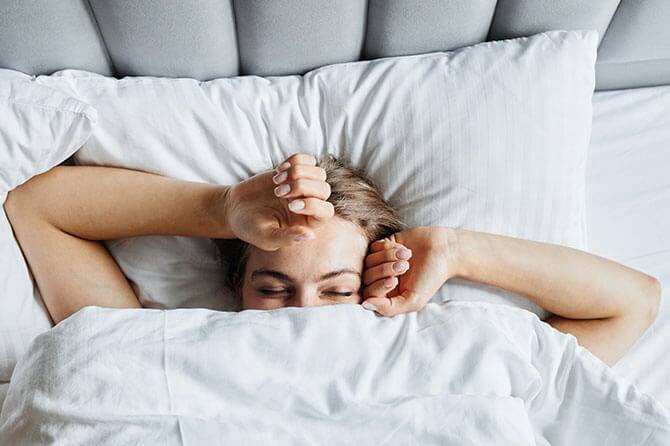
Light
Answer honestly: do you use your phone before bed? Or sleep with a lamp on? In either case, you’re not doing your sleep cycle any favours.
Despite being a frequent argument starter, the blue light emitted by electronic devices fools the body into thinking that it’s daytime, so as Brentford FC players should avoid rewatching their goals, saves and tackles before bedtime, you should resist the urge for one more scroll of Twitter.
And as for sleeping with the lights on? Best avoided. You see, melatonin – the sleep hormone – reacts negatively to light, so while it may be cosy, it’s likely to affect your forty winks.
If you sleep with a light on for a specific reason, try to use the lowest possible lux for minimal disruption.
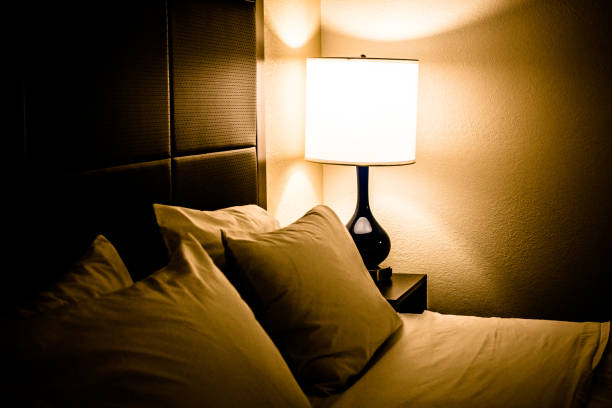
Sleep Hygiene
Sleep hygiene is a vague term, isn't it?
A cursory online search will retrieve thousands of results. But a broad definition would be - 'Habits, behaviours, and environmental factors that can be tweaked to achieve a better night’s sleep'.
Whether how often you change your sheets or how frequently you flip your mattress, better sleep hygiene yields better sleep.
For example, it’s important to regularly change your sheets as dust mites can irritate your airways, causing you to cough, which, in turn, affects the quality of your sleep.
Ambient temperature is important too, so if you don’t own a breathable mattress, you might consider opening a window for ten minutes before going to bed in the summer, thereby preventing overheating.
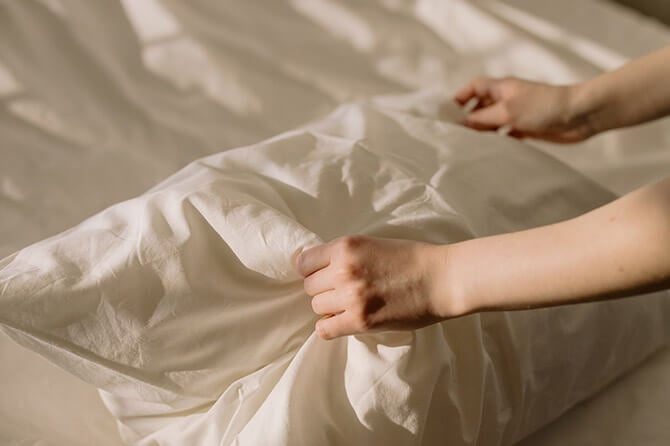
And there you have it! Tips for better sleep, as followed by Brentford FC.






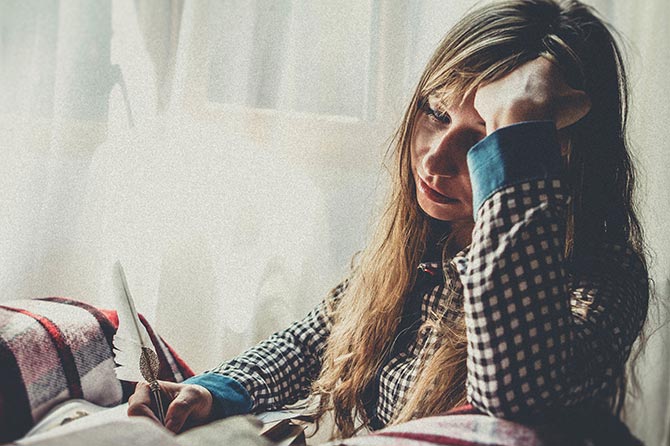
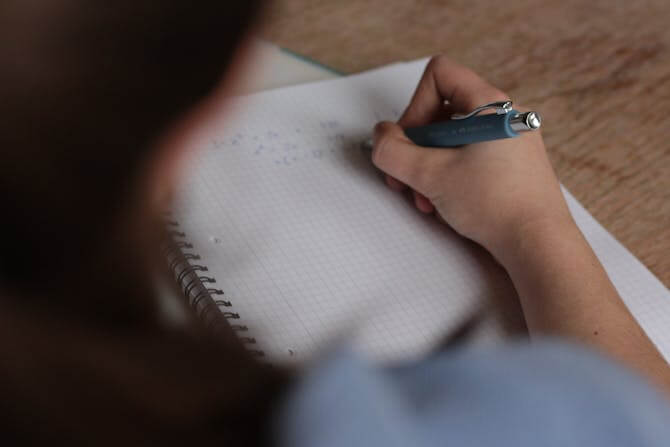
Leave a Reply